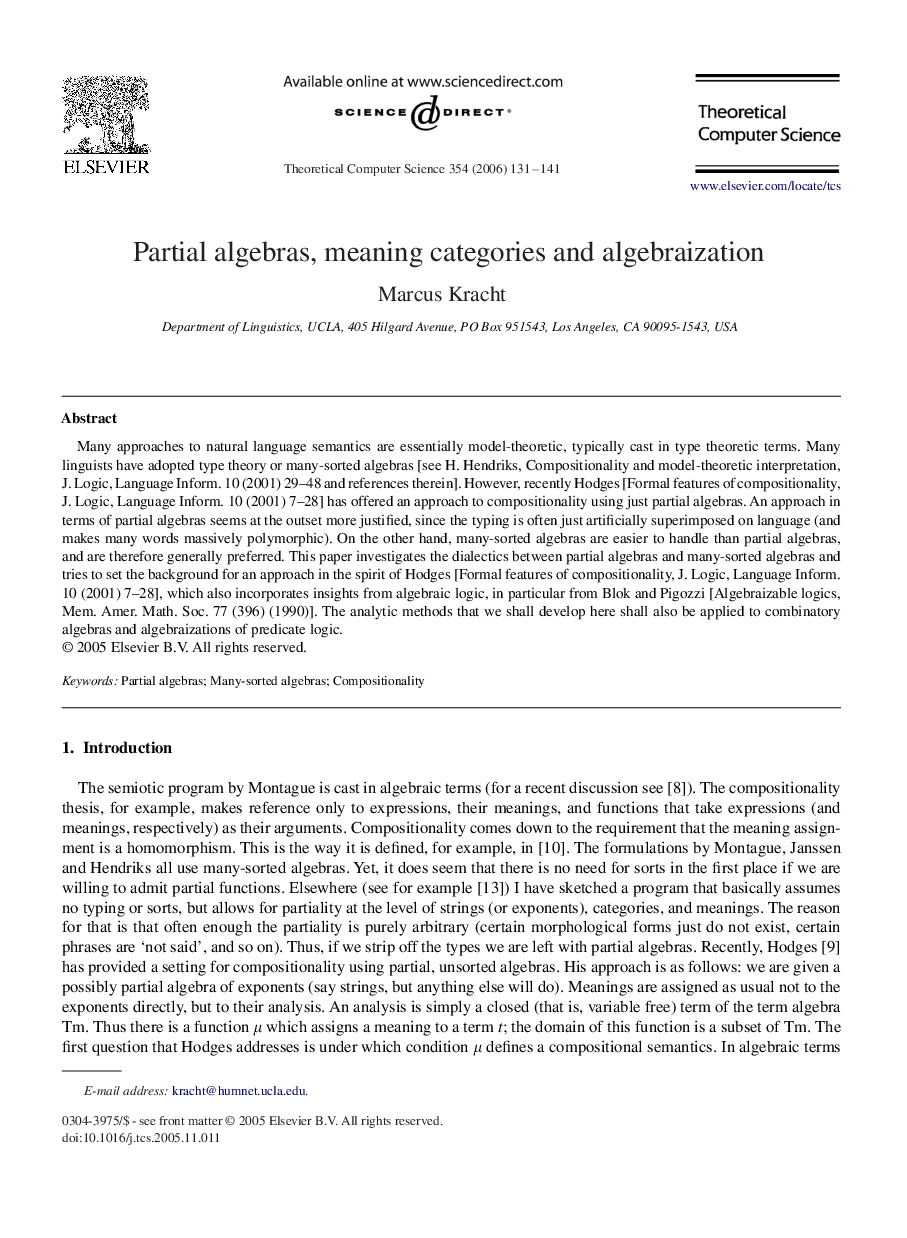| Article ID | Journal | Published Year | Pages | File Type |
|---|---|---|---|---|
| 436693 | Theoretical Computer Science | 2006 | 11 Pages |
Many approaches to natural language semantics are essentially model-theoretic, typically cast in type theoretic terms. Many linguists have adopted type theory or many-sorted algebras [see H. Hendriks, Compositionality and model-theoretic interpretation, J. Logic, Language Inform. 10 (2001) 29–48 and references therein]. However, recently Hodges [Formal features of compositionality, J. Logic, Language Inform. 10 (2001) 7–28] has offered an approach to compositionality using just partial algebras. An approach in terms of partial algebras seems at the outset more justified, since the typing is often just artificially superimposed on language (and makes many words massively polymorphic). On the other hand, many-sorted algebras are easier to handle than partial algebras, and are therefore generally preferred. This paper investigates the dialectics between partial algebras and many-sorted algebras and tries to set the background for an approach in the spirit of Hodges [Formal features of compositionality, J. Logic, Language Inform. 10 (2001) 7–28], which also incorporates insights from algebraic logic, in particular from Blok and Pigozzi [Algebraizable logics, Mem. Amer. Math. Soc. 77 (396) (1990)]. The analytic methods that we shall develop here shall also be applied to combinatory algebras and algebraizations of predicate logic.
